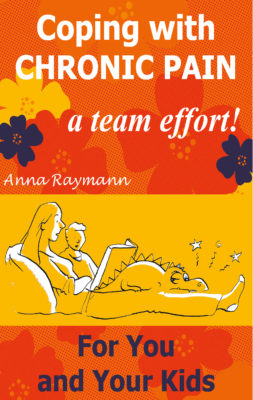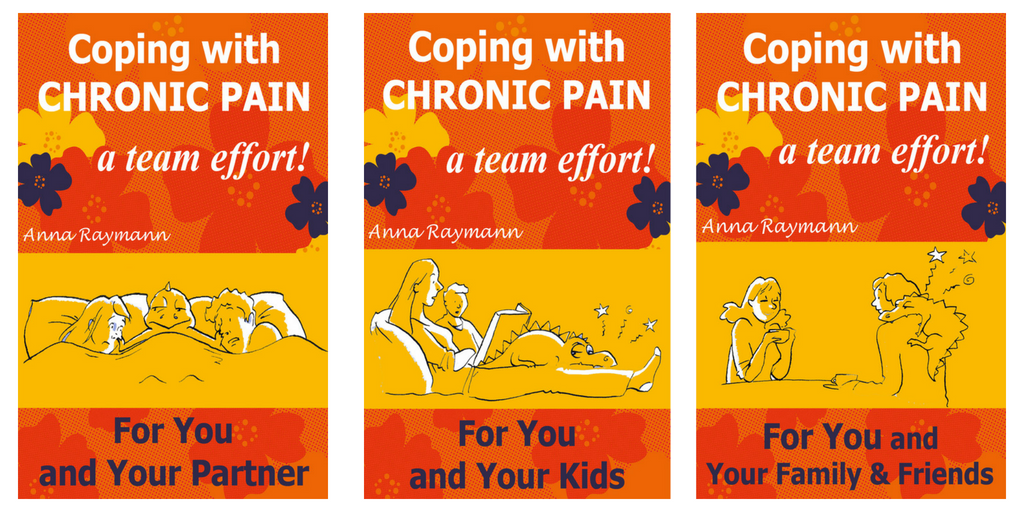
Coping with Chronic Pain is a team effort
A book for you, someone who has to live with pain, and for the children living at home with you: Coping with Chronic Pain - For You and Your Kids by Anna Raymann.
Growing up with a parent who is in chronic pain poses a risk to a child’s happiness & development
Children of parents with pain conditions are more likely to have a heightened vulnerability to developing pain conditions of their own. Teachers have noted that children of chronic pain patients have more significant behavioral problems and poorer social competence. Children of chronic pain patients typically face more problems in work and relationships in adulthood.
This book is about everything you can do to make sure your pain does not cause your children to suffer. In addition it will teach you how you can improve your relationship with your children and make the bond stronger. Like any other parent, you wish the very best for your children, but living with chronic pain makes it more difficult to be there for them when they need you. When you’re suffering so much yourself, it’s easy to take it out on those you love, including your children, without even realizing. Your illness can bring hardship and crisis into the family, but there are always ways to help children cope with the situation. This book will show you how.
It will point out you how you can turn your situation into an opportunity to strengthen family bonds and create resiliency in your children. If done right, it will help your children become better prepared for life’s obstacles, and it will teach them the value of keeping a positive attitude.
Anna Raymann is a writer, a physiotherapist and a chronic pain patient. She wrote this book for you, with the help of a psychologist and over a hundred CPPs and the people around them, to help you to retain a healthy family life in spite of the pain!
Living with chronic pain places a strain on all the important relationships in the life of the patient, as well as their spouse, children, family & friends. In these books you will find hundreds of ‘dos & don’ts’; practical, instantly applicable tips and advice that will benefit everybody suffering from pain, as well as those in their inner and outer social circles. A stronger social network for the chronic pain patient increases activity and can help to reduce the pain, as well as the need for medication and therapy.


